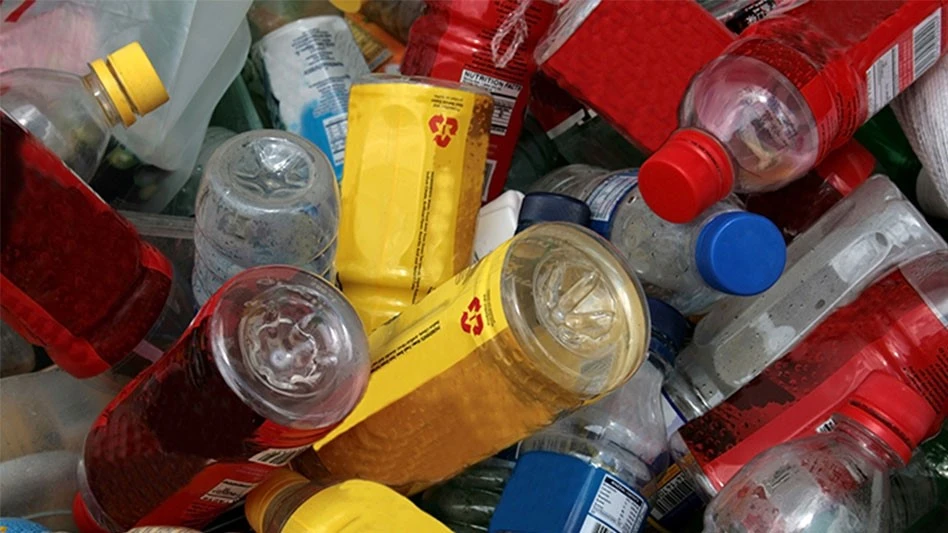
© Jonas Marcos San Luis | Dreamstime.com
In 2018, the U.K.-based Ellen MacArthur Foundation launched its Global Commitment in collaboration with the UN Environment Programme to unite more than 500 organizations across the world around a common vision of developing a circular economy for plastics. The Ellen MacArthur Foundation has released its Global Commitment 2022 Progress Report, highlighting progress and setbacks related to signatories’ 2025 targets to tackle plastic pollution.
While companies have made progress in some areas, Ellen MacArthur Foundation reports that some key 2025 targets are expected to be missed. The foundation says the target of achieving 100 percent reusable, recyclable or compostable plastic packaging “will almost certainly be missed” by most organizations. The foundation adds that flexible packaging and a lack of infrastructure for these materials are the main barriers to reaching these goals.
“Businesses are making and planning major investments in designing packaging to be technically recyclable,” the foundation states in its report. “At the same time, it is important to recognize that a more fundamental rethink of packaging, products and business models will be required for some packaging types or geographies to achieve the target.”
Additionally, the report indicates that its signatories’ use of virgin plastics in packaging has not significantly decreased to the level required by targets. The report says virgin plastics in packaging increased 2.5 percent between 2020 and 2021 among signatory companies.
Greenpeace USA, an environmental nonprofit organization based in Washington, has expressed concerns about the statistics related to recyclability targets in the Ellen MacArthur Foundation’s latest progress report. Greenpeace has released a statement with its stance on the progress report, saying that “the voluntary commitments from companies to address plastic pollution have failed.”
“Instead of tackling the plastic pollution crisis, big brands like Coca-Cola, PepsiCo and Mars actually increased the amount of plastic they create since the [Ellen MacArthur Foundation] Global Commitment was launched in 2018,” says Graham Forbes, project leader, Global Plastics at Greenpeace USA. “This underlines the need for governments to ensure that the Global Plastic Treaty, which starts negotiations shortly, delivers major reductions in plastic production and use and accelerates a just transition to the reuse economy we need. Anything less than this is a disservice to our communities and our climate.”
However, based on data in the Ellen MacArthur Foundation’s Global Commitment 2022 Progress Report, signatories’ voluntary commitments have not all been failures as Greenpeace USA alleges. The report highlights that companies have made progress increasing the use of recycled plastics in products. The report says most signatories involved in the Global Commitment have doubled their use of recycled content in the past three years.
“Signatories’ share of postconsumer recycled (PCR) content has doubled from 4.8 percent in 2018 to 10 percent in 2021,” the report states. “In other words, PCR content increased as much during the past three years as it did in all preceding years since plastic packaging was first introduced. Reaching the aggregate target of 26 percent PCR content by 2025 will require progress to accelerate further, along an exponential growth curve.”
The foundation says 60 percent of its signatories have added at least 2 percentage points of PCR since 2018, and 14 businesses, including Keurig Dr Pepper, L’Oreal, SC Johnson and Unilever, have added more than 10 percentage points in that time.
Overall, the foundation says there has been progress and setback related to signatories’ commitments to improve the circular economy for plastics. The foundation says the prospect of not meeting all 2025 targets “reinforces the urgency for businesses to accelerate action, particularly around reuse, flexible packaging and decoupling business growth from packaging use.” Additionally, the foundation says governments need to take action to accelerate progress and promote a high ambition level in upcoming negotiations for a legally binding instrument on plastic pollution.
Latest from Waste Today
- First NYC commercial waste zone is operational
- Portage, Michigan, launches food scraps recycling pilot program
- Colorado proposes new rules to curb landfill methane emissions
- Over 300 DSNY sanitation workers clean up confetti on New Year’s Eve
- Thinking about selling your waste business?
- Industry civil suit heading to trial in 2025
- SSI equips Japanese company for diverse operations
- Waste Pro cites contract success in 2024





